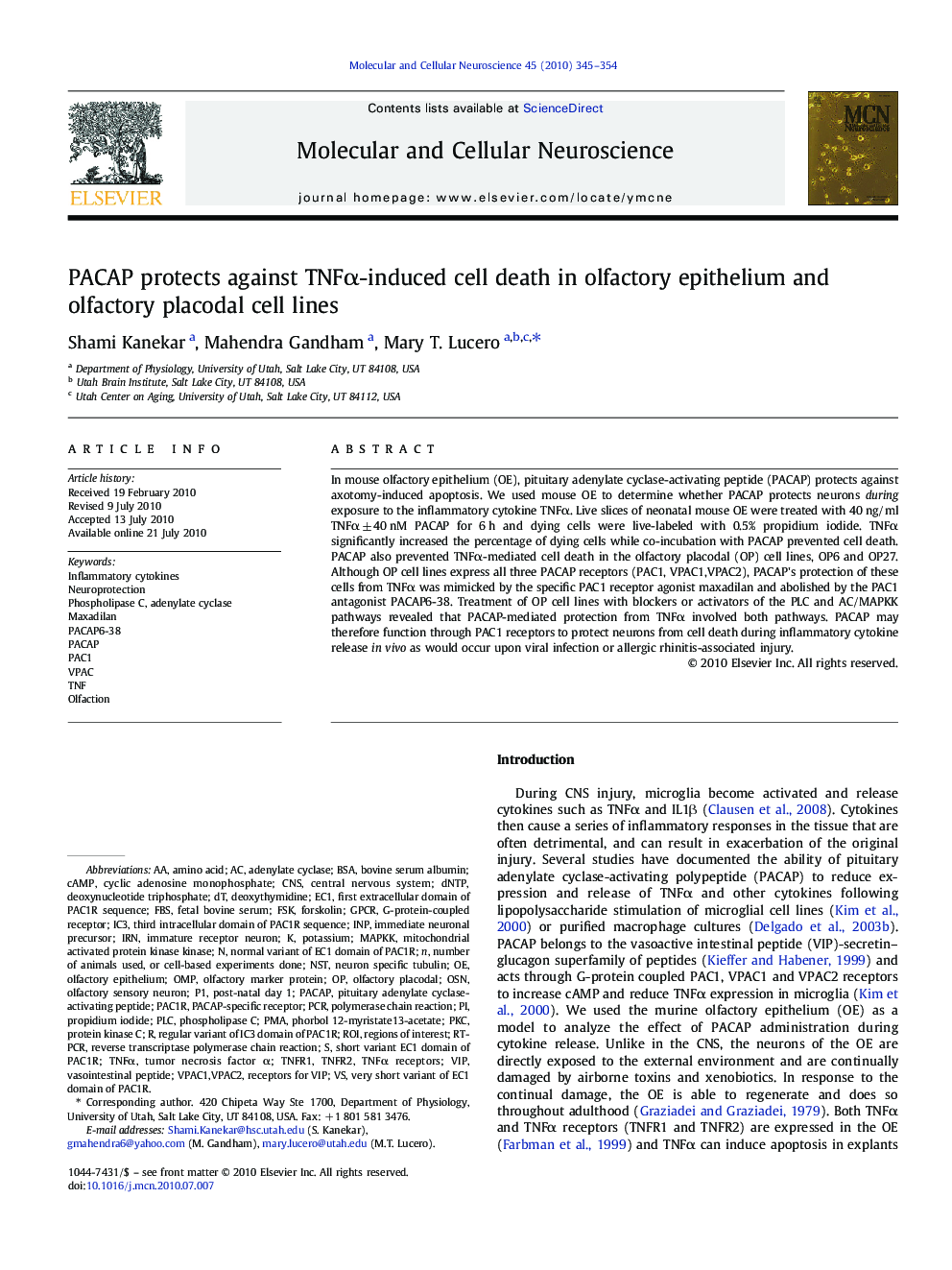| Article ID | Journal | Published Year | Pages | File Type |
|---|---|---|---|---|
| 10956606 | Molecular and Cellular Neuroscience | 2010 | 10 Pages |
Abstract
In mouse olfactory epithelium (OE), pituitary adenylate cyclase-activating peptide (PACAP) protects against axotomy-induced apoptosis. We used mouse OE to determine whether PACAP protects neurons during exposure to the inflammatory cytokine TNFα. Live slices of neonatal mouse OE were treated with 40 ng/ml TNFα ± 40 nM PACAP for 6 h and dying cells were live-labeled with 0.5% propidium iodide. TNFα significantly increased the percentage of dying cells while co-incubation with PACAP prevented cell death. PACAP also prevented TNFα-mediated cell death in the olfactory placodal (OP) cell lines, OP6 and OP27. Although OP cell lines express all three PACAP receptors (PAC1, VPAC1,VPAC2), PACAP's protection of these cells from TNFα was mimicked by the specific PAC1 receptor agonist maxadilan and abolished by the PAC1 antagonist PACAP6-38. Treatment of OP cell lines with blockers or activators of the PLC and AC/MAPKK pathways revealed that PACAP-mediated protection from TNFα involved both pathways. PACAP may therefore function through PAC1 receptors to protect neurons from cell death during inflammatory cytokine release in vivo as would occur upon viral infection or allergic rhinitis-associated injury.
Keywords
PAC1FskGPCRPACAPPLCforskolinIRNOMPdNTPPKCINPEC1MAPKKPAC1RVPACTNFvasointestinal peptideIC3VIPRT-PCRFBSTNFαROINSTBSAcAMPG-protein-coupled receptorPMACyclic adenosine monophosphateadenylate cyclasebovine serum albuminamino acidolfactory epitheliumolfactiontumor necrosis factor αCNSdeoxythymidinedeoxynucleotide triphosphateOSNfetal bovine serumInflammatory cytokinescentral nervous systemolfactory sensory neuronphospholipase CNeuroprotectionRegions Of Interestreverse transcriptase polymerase chain reactionpolymerase chain reactionPCRPotassiumolfactory marker proteinProtein kinase CPropidium iodidepituitary adenylate cyclase-activating peptideMaxadilan
Related Topics
Life Sciences
Biochemistry, Genetics and Molecular Biology
Cell Biology
Authors
Shami Kanekar, Mahendra Gandham, Mary T. Lucero,
